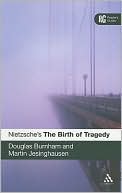Category Books
- Fiction Books & Literature
- Graphic Novels
- Horror
- Mystery & Crime
- Poetry
- Romance Books
- Science Fiction & Fantasy
- Thrillers
- Westerns
- Ages 0-2
- Ages 3-5
- Ages 6-8
- Ages 9-12
- Teens
- Children's Books
- African Americans
- Antiques & Collectibles
- Art, Architecture & Photography
- Bibles & Bible Studies
- Biography
- Business Books
- Christianity
- Computer Books & Technology Books
- Cookbooks, Food & Wine
- Crafts & Hobbies Books
- Education & Teaching
- Engineering
- Entertainment
- Foreign Languages
- Game Books
- Gay & Lesbian
- Health Books, Diet & Fitness Books
- History
- Home & Garden
- Humor Books
- Judaism & Judaica
- Law
- Medical Books
- New Age & Spirituality
- Nonfiction
- Parenting & Family
- Pets
- Philosophy
- Political Books & Current Events Books
- Psychology & Psychotherapy
- Reference
- Religion Books
- Science & Nature
- Self Improvement
- Sex & Relationships
- Social Sciences
- Sports & Adventure
- Study Guides & Test Prep
- Travel
- True Crime
- Weddings
- Women's Studies
Nietzsche's 'the Birth of Tragedy': A Reader's Guide »

Authors: Douglas Burnham, Martin Jesinghausen
ISBN-13: 9781847065858, ISBN-10: 1847065856
Format: Paperback
Publisher: Continuum International Publishing Group
Date Published: May 2010
Edition: (Non-applicable)
Author Biography: Douglas Burnham
Book Synopsis
Introduction to one of Nietzsche's most important works - a key text in nineteenth-century philosophy.
Table of Contents
Introduction 1
1 Context 4
2 Overview of Themes 9
3 Reading the Text 14
'An Attempt at Self-Criticism' 14
Foreword: Art, Wagner and War 24
Section 1 The Apolline and Dionysiac as Art-Drives and 'Living Concepts'; Envisaging a New Science of Aesthetics. Note: Nietzsche and Darwin 27
Section 2 The Drives at Work in Pre-Socratic Greece; Three Types of Symbolization; Psychogenesis of the Dionysian in Asia and in Greek Culture 45
Section 3 The Origins of 'Genealogy': Psychogenesis of the Apollonian in the Greek 'Character'. Note: Nietzsche, German 'Hellenism' and Hölderlin 50
Section 4 Necessity of Relationship between the Drives: their 'Reciprocal Intensification'; the 'Ethics' of the Drives; the Five Periods of Greek Culture; Introduction of 'Attic Tragedy' 58
Section 5 Historical Manifestation of the 'Third Type' of Symbolization: Archilochus, the 'Father' of Tragedy; The Fusion of the Drives in Lyric Poetry 61
Section 6 Folk Song; Fusion of Language and Music 65
Section 7 The Chorus as Historical Nucleus of Tragedy; Nietzsche's Critique of Hegel 68
Section 8 The Chorus as Earliest Cell of Tragedy; Modern Poetry and Theory of Language. Note: Philosophy of Language in Nietzsche 73
Section 9 The Double Meaning of Sophoclean and Aeschylean Tragedy 80
Section 10 The Revival of Myth in Tragedy as its Death Throes: The End of the Mythological Age and the Dawning Age of Logic 85
Section 11 Euripides as Critic rather than Poet 88
Section 12 The Misunderstanding and Repression of the Art-Drives 90
Section 13 Socrates - The Axis of Cultural History 93
Section 14 Death of Tragedy; Birth of Modern Art 97
Section 15 Science as a Deficient Mode of Art; Socrates at the Gates of Modernity 102
Section 16 Aesthetics of Modern Music Drama. Note: Nietzsche, Music and Style 107
Section 17 Death of Myth as the Death of Tragedy 114
Section 18 The Crisis of Socratic Modernity. Note: on 'Bildung' 116
Section 19 Naïve and Sentimental; Early Opera-Mismatch of Ingredient Elements 124
Section 20 German Education; Revolutionary Epiphany 130
Section 21 Modern Opera - Wagner's Tristan and Isolde as Aesthetic Paradigm 132
Section 22 The Aesthetic Listener 141
Section 23 The Still Untroubled Unity of the German Spirit 144
Section 24 Justification of the World as Aesthetic Phenomenon Radicalised - Theory of Musical Dissonance 147
Section 25 The Study of Dissonant Man 151
4 Reception and Influence 154
Study Questions 161
Notes 163
Further Reading 181
Index 191
Subjects
 Literary Criticism
Literary Criticism  Ancient & Medieval Literature
Ancient & Medieval LiteratureFiction Books & Literature
 Literary Criticism
Literary Criticism  Drama - Literary Criticism
Drama - Literary CriticismFiction Books & Literature
 Literary Criticism
Literary Criticism  General & Miscellaneous Literary Criticism
General & Miscellaneous Literary CriticismEntertainment
 Music Books
Music Books  Classical Music
Classical MusicEntertainment
 Music Books
Music Books  Music Theory & Composition
Music Theory & CompositionEntertainment
 Music Books
Music Books  Opera
OperaNonfiction
 Philosophy
Philosophy  European & American Philosophy
European & American PhilosophyNonfiction
 Philosophy
Philosophy  Major Branches of Philosophical Study
Major Branches of Philosophical StudyPhilosophy
 European & American Philosophy
European & American Philosophy  German Philosophy
German PhilosophyPhilosophy
 Major Branches of Philosophical Study
Major Branches of Philosophical Study  Aesthetics & Philosophy of Art
Aesthetics & Philosophy of Art
